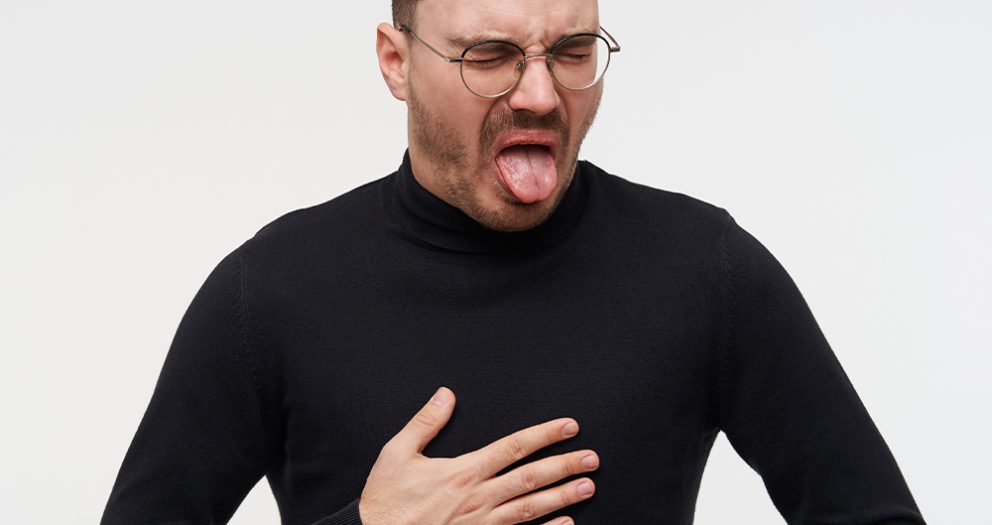If you’ve had the misfortune of experiencing the debilitating and painful impact of an irritable bowel syndrome (IBS), you would have noticed that its impact bears no semblance to other conditions that are experienced by many other people. The difference with other conditions is that IBS symptoms are recurring over the long term despite the fact that a plethora of treatments including domperidone are available for treating it.
The Irritable bowel syndrome (IBS) condition
This condition is a family of intestinal symptoms that usually take place at the same time with varying degrees of severity and duration for different individuals.
While they usually last for a period of three months at a stretch, they usually occur for at least three days in every month, stop for a while and can reoccur again.
It can cause intestinal damage in its wake in some cases but this is usually not a very common occurrence.
It’s not similar to inflammatory bowel disease and while it’s known not to increase the risk of causing gastrointestinal cancers, its impact on your life can be significant.
You can learn more about the impact of IBS on your life here.
Symptoms of IBS
Listed below are some of the typical symptoms of IBS that can include:
- abdominal pain
- cramping
- diarrhea
- constipation
- bloating and gas
When people are suffering from IBS, it’s not unusual for them to experience bouts of constipation and diarrhea.
However, the symptoms of bloating and gas usually dissipate following a bowel movement when gas is released.
IBS symptoms are usually of short term duration that can resolve themselves over several days but usually comes back again. However, for some people, their symptoms are continuous.
You can get more information on IBS symptoms here.
IBS symptoms in men
The symptoms of IBS that appear in men are similar to those experienced by women but the difference is that fewer men tend to report their symptoms to healthcare providers for treatment than women.
Click here to learn more about the effects of IBS on men
IBS symptoms in women
Typically, women are more susceptible to have IBS symptoms round about the time of their menstrual cycle, or they experience more symptoms during this time.
Conversely, menopausal women experience fewer symptoms that women who are still menstruating at the time of their monthly cycles.
Some women have actually reported an increase in certain symptoms during their pregnancy. For more information on women symptoms, click on at this link.
Pain from IBS
The pain caused by IBS can be the same as the pain caused from cramping, but the pain is usually accompanied by the following experiences:
- some pain relief following a movement of the bowel
- how often you have a bowel movement may be changed
- the way your stools look changes
Diagnosis of IBS
Your doctor will usually base his diagnosis on your IBS condition on the symptoms that you have. They will also most likely follow one or more of the steps listed below so they can cancel out other possible causes of your symptoms:
- suggest that you take up a certain diet or leave out certain food groups from your food intake for a period of time to leave out any food allergies you may have
- examine a sample of your stool to rule out any infection influences
- undergo blood tests so as to check for anemia and to rule out any celiac diseases
- recommend the performance of a colonoscopy
A colonoscopy is done only if your doctor suspects that colitis, inflammatory bowel disease (Crohn’s disease), or cancer are responsible for causing your symptoms.
To learn more about the process of diagnosing IBS, click here
Ideal diet for IBS
Dietary changes can greatly benefit some people by helping to ease their symptoms.
Because IBS symptoms are different among people who have the condition, the approaches to dietary changes must also be changed.
In order to have a wide perspective and understanding of the different dietary approaches available for you to use, you should click this link.
IBS remedies and treatments
Home remedies
The home remedies or lifestyle changes that can help to relieve your IBS symptoms without using medications, especially if the symptoms are mild. These lifestyle changes can include:
- joining in regular physical exercises
- reducing the intake of caffeinated drinks that stimulate the intestines
- cutting down on the size of meals
- controlling and minimizing stress (counseling may help)
- taking of probiotics (which are ‘good’ bacteria usually found in the intestines) for relieving gas and bloating symptoms.
- avoidance of spicy or deep fried foods
Foods to avoid while having IBS
When you want to boost your performance on the track you train hard and take drugs and if you want to have muscles great muscles you do lifts and take steroids.
It’s the same for combating IBS although you don’t increase your ingestion of food but you deliberately avoid certain types of foods. And you’ll find that it’s worth your while.
You can start by minimizing your intake of dairy, fried foods, indigestible sugars. Beans may help reduce different symptoms.
The adding of spices and herbs such as ginger, peppermint, and chamomile in cooked meals has helped to reduce some IBS symptoms.
You can learn more about how some foods interact with IBS symptoms by clicking this link.
Medications for IBS
Sometimes, home remedies such as lifestyle and dietary changes, are insufficient for improving your symptoms and your doctor may suggest using medications.
If you opt to do this, you should know that different individuals will respond differently to the same medication so you’ll to work closely with your doctor to find the ideal medication for treating your IBS.
It’s very important for you to tell your doctor about any medications you are already taking that should also include herbal remedies, as well as OTC treatments.
This will enable your doctor to identify medications that may interact with the medication you are already taking.
There’s a plethora of medications available for treating IBS but you and your doctor will need to select the most effective and most appropriate for your IBS symptom. These medications work to control muscle spasms, ease pain, and help ease constipation.
The following medications can be used for treating your specific IBS symptom:
- Domperidone (help increase bowel contractions)
- Tricyclic antidepressantsand antibiotics(eases pain)
- Antibiotics (for easing pain)
- Linaclotide and lubiprostone (constipation)
Conclusion
The one thing that all patients truly desire is that their condition will be treated effectively given the availability and potency of the medication or medications that have been selected for treating their specific condition, which in this case is IBS. This article has been written to enforce this truth and to present a brief general coverage of the medications that are available for treating IBS symptoms.






